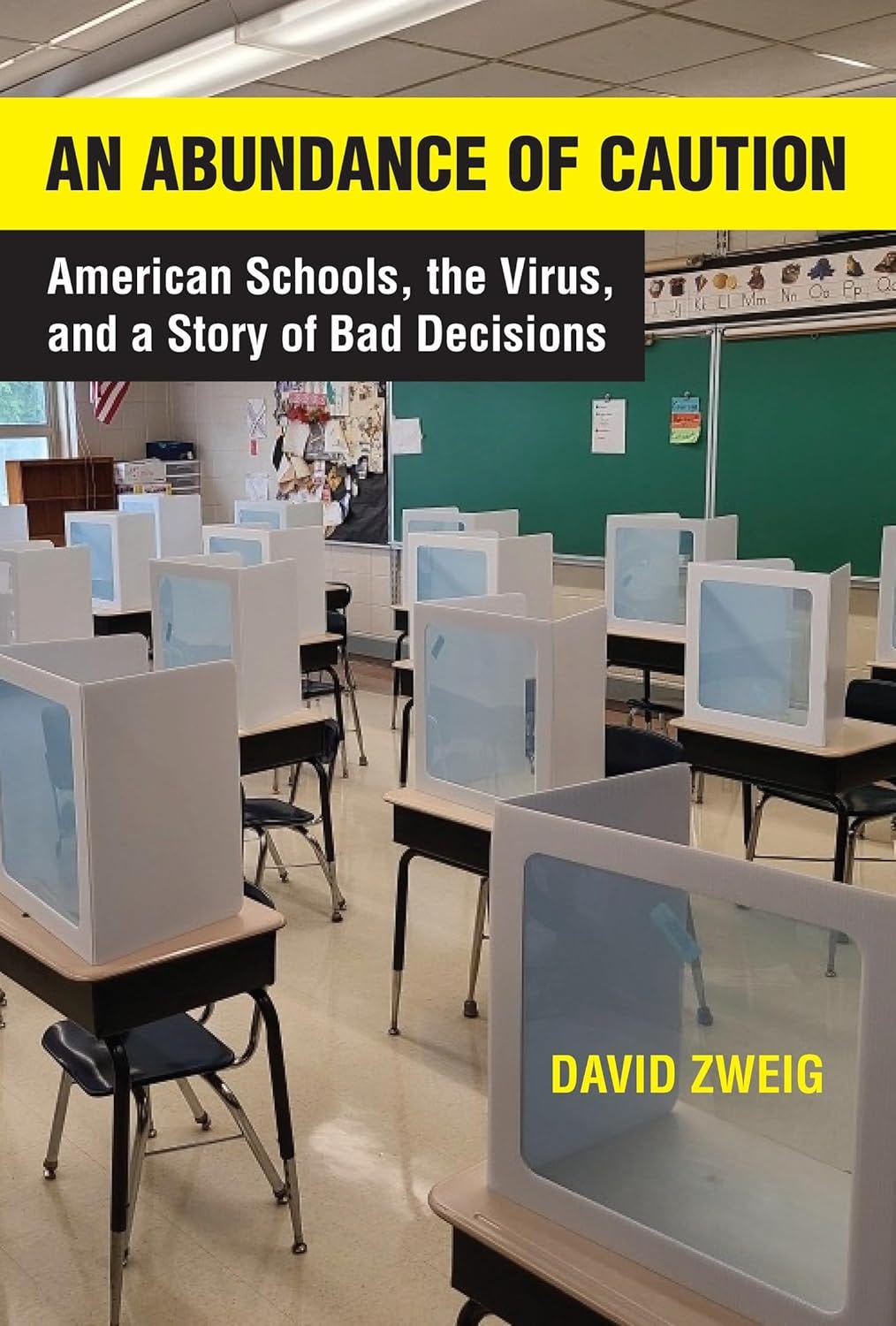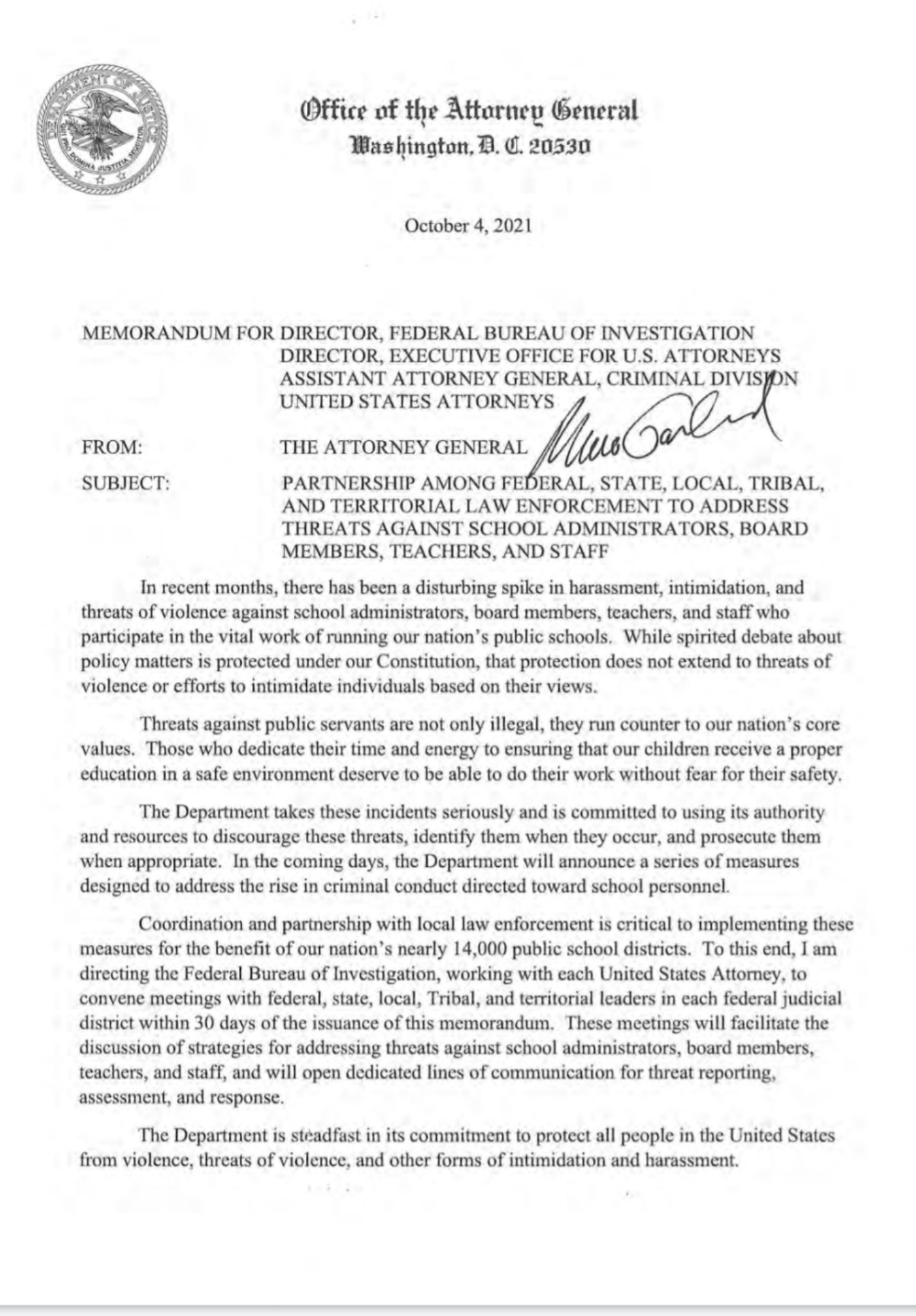A Pivotal Week in Child Advocacy – David Zweig’s New Book, Our Documentary...
and the fight for parental rights
This past week has been a turning point for child advocacy, with seismic developments that promise to reshape how we protect our children’s education and well-being. From David Zweig’s explosive new book exposing the catastrophic mishandling of school closures to the Supreme Court hearing a landmark case on parental rights in Maryland, the momentum is building.
Combined with our upcoming documentary, 15 Days, these efforts are poised to set the record straight on the harm inflicted on children during the COVID era and empower parents to reclaim their voices. Let’s dive into the week’s biggest stories and what they mean for the future.
David Zweig’s An Abundance of Caution: A Damning Indictment of School Closures
My friend, journalist David Zweig’s newly released book, An Abundance of Caution (MIT Press), has sent shockwaves through the education and child advocacy communities. The book meticulously dissects the decision-making process behind the prolonged school closures that kept 55 million American children out of classrooms for up to two years (here’s looking at you, California!) during the COVID-19 pandemic.
Far from being a cautious necessity, Zweig argues, these closures were driven by unscientific policies, media fearmongering, and union influence, despite mounting evidence of the damage to children’s academic progress, mental health, and social development. You can buy your copy of An Abundance of Caution here.
Zweig’s work is a clarion call, showing that we didn’t “do the best we could with the information we had,” as some officials claim. Instead, as he details, policymakers, cultural elites, and institutions did the worst they could, ignoring data that showed schools could safely reopen and prioritizing adult interests over children’s needs. The consequences—learning loss, skyrocketing anxiety and depression, and widened inequality—are scars that will mark a generation.
This book is more than a historical reckoning; it’s a catalyst. Its release accelerates the urgency of our forthcoming documentary, 15 Days, which chronicles the human toll of school closures through the stories of families and children.
Visit 15daysfilm.com to sign up for updates on the film’s release and join our mission to amplify these stories.
Together, Zweig’s rigorous analysis and our film’s explosive storytelling will expose the truth and demand accountability. An Abundance of Caution lays the intellectual groundwork, proving the failures were systemic and avoidable, while 15 Days will bring those failures to life, ensuring the public cannot look away. We hope that this one-two punch will galvanize parents, educators, and policymakers to prioritize children’s needs in future crises.
Supreme Court Hears Maryland Parents’ Fight for Parental Rights
On the legal front, the Supreme Court heard a critical case this week involving Maryland parents challenging school policies they claim infringe on their rights to guide their children’s education. The parents argue that these policies violate their constitutional rights to direct the upbringing of their children, a principle rooted in decades of legal precedent. For more on this case follow my friend
and read her excellent reporting in .This hearing is a flashpoint in the broader battle over parental rights, especially as schools increasingly adopt curricula and policies that some parents view as ideological indoctrination. The Maryland case could set a nationwide precedent, clarifying the extent to which parents can influence school policies on issues like gender identity, critical race theory, or other controversial topics. A ruling in favor of the parents would empower families to challenge secretive or overreaching school policies, reinforcing that parents, not bureaucrats, are the primary decision-makers for their children.
The stakes are high, and the outcome will ripple across the country. If the Supreme Court upholds the parents’ rights, it could embolden more families to push back against school boards and administrators, creating a groundswell of advocacy for transparency and parental involvement. This aligns directly with the themes in Zweig’s book and our documentary: children’s well-being must come first, and parents are their fiercest protectors.
The Biden Administration’s “Domestic Terrorists” Label and Its Fallout
Adding fuel to the fire, the Maryland case and the broader parental rights movement are haunted by the Biden administration’s 2021 decision to label parents who protested school policies as potential “domestic terrorists.” Prompted by a National School Boards Association letter, the Justice Department issued a memo directing the FBI to investigate threats against school officials, framing vocal parents as a national security risk. This move chilled free speech and alienated countless families who felt demonized for advocating for their children.
The backlash was swift and enduring. Parents organized, ran for school boards, and amplified their voices, turning their outrage into action. The Supreme Court case in Maryland is, in many ways, a culmination of this fight—a chance to affirm that parents are not threats but essential partners in education. The Biden administration’s misstep underscored a dangerous disconnect between policymakers and families, a theme Zweig’s book hammers home. By ignoring parents’ concerns and doubling down on top-down control, officials repeated the same mistakes that fueled the school closure debacle, prioritizing ideology over evidence and harming children in the process.
The Path Forward: Truth, Accountability, and Advocacy
The convergence of Zweig’s An Abundance of Caution, our documentary 15 Days, and the Maryland Supreme Court case marks a pivotal moment in child advocacy. Together, they tell a powerful story: the systems meant to protect our children failed them, but parents and truth-tellers are fighting back. Zweig’s book proves the school closures were a policy disaster rooted in fear (or worse) and certainly not science. 15 Days will humanize that disaster, telling the stories of those who suffered. And the Maryland case could enshrine parents’ rights to stand against harmful policies, giving them the legal tools to act.
These developments are a wake-up call. We cannot afford to repeat the mistakes of the past, where children were collateral damage in adult power struggles. The harm was immeasurable—academic setbacks, mental health crises, and eroded trust—but the response can be transformative. By amplifying these stories and taking the fight to the courts, we can hasten a future where children’s needs come first, parents are empowered, and accountability is non-negotiable.
Please consider becoming a paid subscriber to help us continue this critical work of advocating for children and families.








